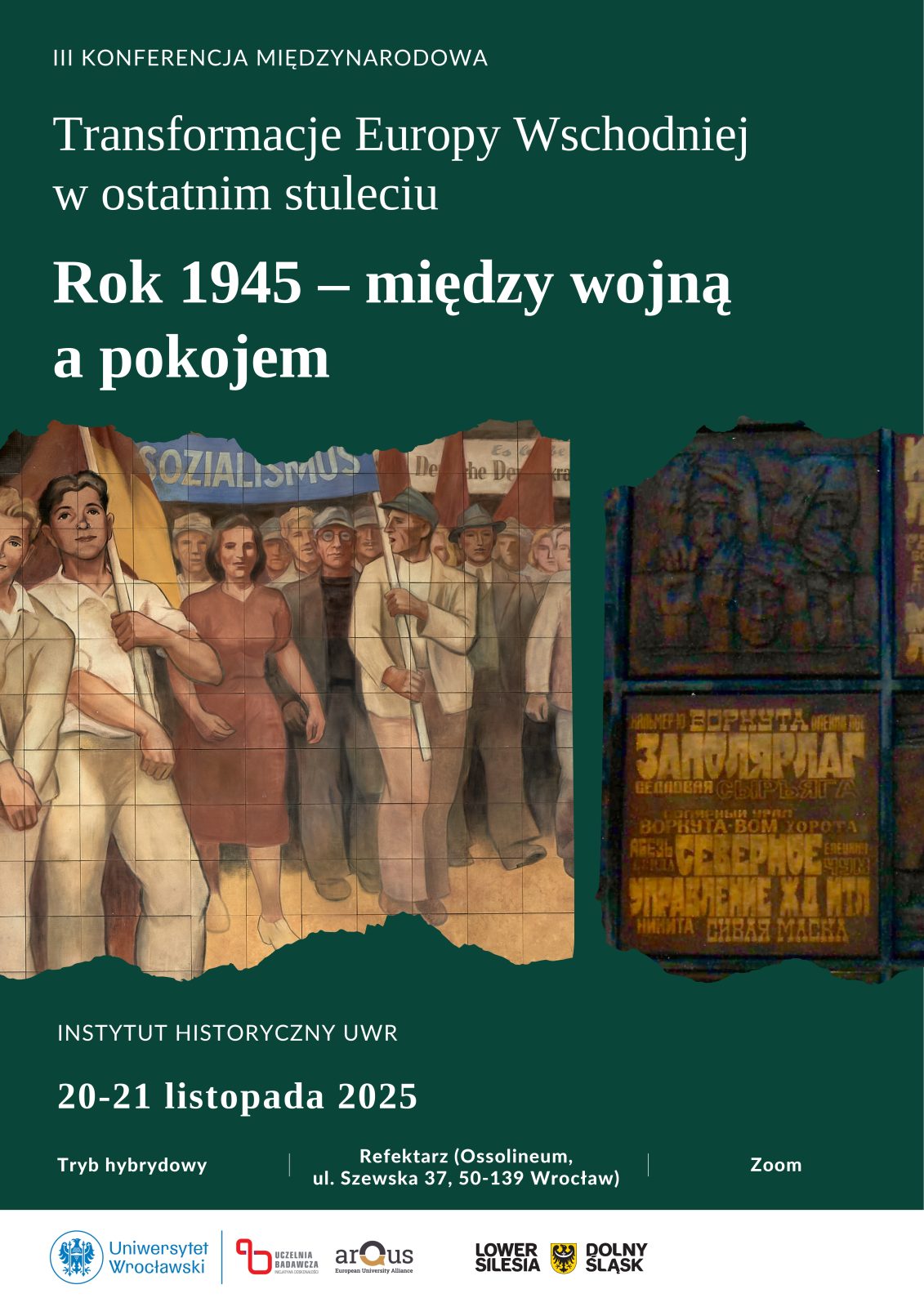
3rd International Conference: 1945 – Between War and Peace
The Historical Institute at the University of Wrocław invites you to the third edition of a conference devoted to the 20th century in the history of Eastern Europe. The two-day event has been organised with funding from the Institute, a grant from the Rector, Professor Robert Olkiewicz, and the Dean of the Faculty of Historical and Pedagogical Sciences, dr Paweł Klint. The conference has also received financial support from the Marshal’s Office of the Lower Silesian Voivodeship.
This year’s conference is centred around two main themes. The first, as in previous years, involves a review of current scholarship and the presentation of the latest and diverse research on the transformations undergone by Eastern Europe in the 20th century, including the (post-)Soviet space beyond Europe. The focus will be on issues of nationality, policies of repression, the construction and dismantling of the Soviet system, the societal changes brought about by “communist modernisation”, and the consequences of the USSR’s collapse. The conference will also explore the question of collective memory of communism and contemporary societies’ attitudes towards its legacy.
The second key theme concerns the end of the Second World War, viewed from the perspective of this region of Europe. It is broadly framed as a space of experience “between war and peace”, encompassing the diverse consequences of the war for the nations and states of Eastern Europe. The programme will also include topics addressing collective memory of the war’s end and educational initiatives related to it.
The organisers wish for the scholarly legacy of professor Stanisław Ciesielski (1954–2020), founder and long-time head of the Department of Eastern European History at the Historical Institute of the University of Wrocław, and an outstanding researcher of Stalinism and nationality issues to remain an inspiration for the themes addressed and discussions undertaken. Early December marks the fifth anniversary of his unexpected passing.
The conference will be held in the Refectory of the Ossoliński National Institute on 20–21 November 2025 and will be interpreted into three languages: English, Ukrainian, and Russian. Each session will be followed by a 20-minute discussion.
Those interested in online participation are asked to send their registration to: malgorzata.ruchniewicz@uwr.edu.pl or magdalena.gibiec@uwr.edu.pl
The detailed programme of the conference can be found below. The Organising Committee consists of: dr Magdalena Gibiec, professor Grzegorz Hryciuk, professor Małgorzata Ruchniewicz (academic chair of the conference) and dr Aleksander Srebrakowski.

Date of publication: 18.11.2025
Added by: EJK



